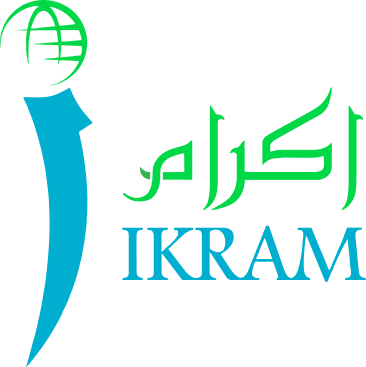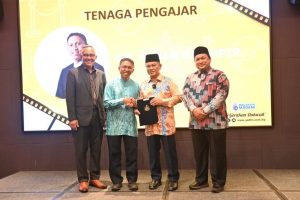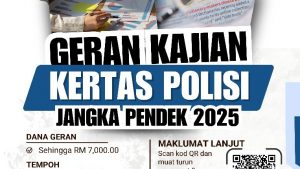Schools throughout the nation have started to reopen and allow students to experience face to face classes. The students gradually started to return to school in compliance to the guideline by the Ministry of Education. In line with this, a rotation system has been implemented in order to minimize the number of students and consequently reduce the risk of an outbreak.
Recently, the education ministry announced that there will be no rotation system in schools that have exceeded a 90 percent jab rate. This applies for students who are currently sitting for public and international examinations. In light of this situation, it projects a possibility for students to return to the physical classroom in the near future.
This poses several relevant questions on everyone’s mind, will the learning system be reverted back as before? Will there be modifications in the learning environment? Will technology have a more expansive use for teaching and learning?
Since before the pandemic, Malaysia had highlighted the goals and importance of developing students in the area of Science, Technology, Engineering and Mathematics (STEM). Without it, Malaysia would face a setback in producing a sufficient talent pool to satisfy market demand.
According to the Science Outlook Report for 2017, the targeted enrollment for STEM courses in tertiary education is 60 percent, however the reported number was only 40 percent in 2016. On top of that, according to the Education Ministry’s 2020 Annual Report, the percentage of upper secondary school students who are involved in STEM was 47.18 percent. It is still considerably far from the national target of 60 percent.
Based on research ‘The Issues and Challenges in Empowering STEM on Science Teachers in Malaysian Secondary Schools, it stated there are many reasons that influence this percentage. The findings illustrate that science teachers’ exposure and training on STEM, a lack of facilities, inadequate budget, heavy workload, time constraints and also lack of support from school leaders constitutes factors affecting the STEM enrollment. These have greatly influenced the teachers performance hence negatively affecting the students’ motivation.
Students who at first seem interested in pursuing engineering as a career could forgo their dream when they could not understand physics due to the teacher’s inadequate knowledge in STEM education and insufficient opportunities to be creative and innovative in teaching. On the other hand, students who have a passion for Biology could also be denied the opportunity to be submerged in the area due to lack of facilities. This situation occurs and affects the students decision to pursue the area of STEM.
In relation with the school reopening post pandemic, what are the elements that could be adapted and learned through online learning to solve STEM problems?
For a start, teachers need to utilise online teaching resources for simulations in their teaching and learning. Since the lockdown, many online resources providers have grown exponentially and upgraded to suit learning needs. PhET’s are one of the platforms that provide simulations for subjects such as physics, chemistry, mathematics and biology.
Teachers could easily explain complicated theories with ease while giving the opportunity for students to have an active engagement by discovering the outcome by themselves. By doing this, teachers could initiate inquiry based learning activities in the classroom.
Moreover, the Ministry of Education could update current modules such as Siri Bahan Sumber Sains, Teknologi, Engineering Dan Matematik (BSTEM) to integrate digitalization elements. Currently the examples that are included in the modules are activities that can be done with minimal use of technology.
Such examples are building a model of a polygon bridge from an ice cream stick. A substitute for this could be to play the ‘build a bridge’’ game, where students can test out using different materials with the goal to successfully transport a vehicle between two points. By doing this, schools could compensate for their lack of facility with online material while building a 21st century education classroom.
Beside that, students have equipped themselves with a lot of technological skills during online classes. Thus, the curriculum should make a major paradigm shift to encourage self learning among students. Build students’ curiosity and skills for self efficacy, in order to produce lifelong learners.
It will be a waste if it is not utilized towards the benefits of education. School should be a place that sparks an interest in students, while they independently would continue to learn based on their respective interests. There is a huge array of webinars and opportunities online that have yet to be explored by the students such as online courses.
In STEM education, we should not spoon feed the students or mould them to be exam oriented. Instead, we need to produce students who are critical thinkers, innovative and have problem solving skills. This is the future of STEM education, we should never regress back to learning styles pre-pandemic.
Danial Farook
Harmoni Malaysia Activist
Faculty of Education UiTM








